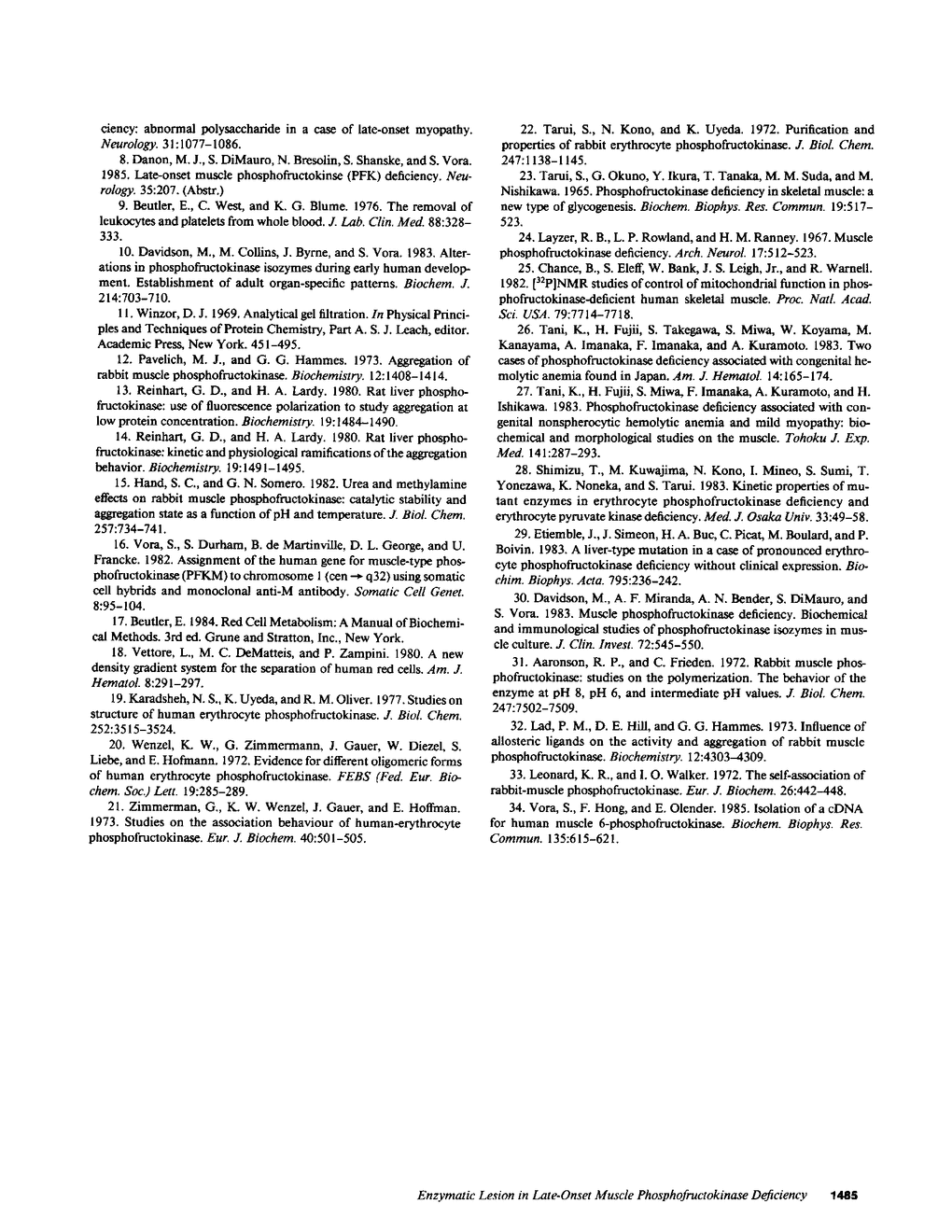Abstract
Human phosphofructokinase (PFK) exists in tetrameric isozymic forms, at least in vitro. Muscle and liver contain homotetramers M4 and L4, respectively, whereas red cells contain five isozymes composed of M (muscle) and L (liver) type subunits, i.e., M4, M3L, M2L2, and ML3, and L4. Homozygous deficiency of muscle PFK results in the classic glycogen storage disease type VII characterized by exertional myopathy and hemolytic syndrome beginning in early childhood. The genetic lesion results in a total and partial loss of muscle and red cell PFK, respectively. Characteristically, the residual red cell PFK from the patients consists of isolated L4 isozyme; the M-containing hybrid isozymes are completely absent. In this study, we investigated an 80-yr-old man who presented with a 10-yr history of progressive weakness of the lower limbs as the only symptom. The residual red cell PFK showed the presence of a few M-containing isozymes in addition to the predominant L4 species, indicating that the genetic lesion is a "leaky" mutation of the gene coding for the M subunit. The presence of a small amount of enzyme activity in the muscle may account for the atypical myopathy in this patient.
Authors
S Vora, S DiMauro, D Spear, D Harker, M J Danon
Other pages:
| 1479 | 1480 | 1481 | 1482 | 1483 | 1484 | 1485 |




